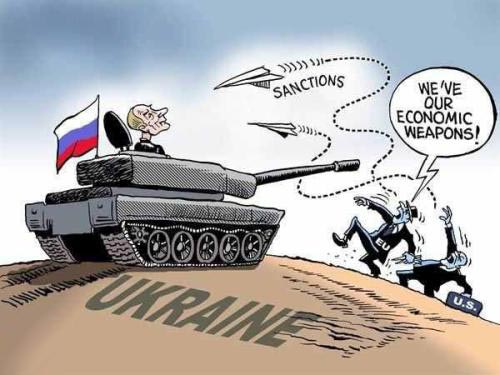Poland and Germany were both initiators and drivers of a New Eastern policy linked to the Eastern neighborhood and Russia/Soviet Union.
Uladzimir Matskevich: No one in the modern world is ready to the full-scale war with Russia

However, we shouldn’t underestimate Russian influence that reaches Western institutions.
The USA is elaborating new sanctions against Russian business. The EU is also thinking about freezing the assets and introducing visa bans for 19 people, 5 of whom are Russian officials; 6-7 companies related to the pro-Russian gunmen in Donbas are also expected to be included in the list.
However, while loud conversations are taking place, no real actions are taken.
And meanwhile the war in Donbas is flaring up with a bang.
Why the West cannot adequately react to the new wave of escalation of war in Ukraine? What is the meaning of the symbolic actions of the US and the EU? Are they effective?
Uladzimir Matskevich, the head of the Board of the International Consortium “EuroBelarus”, answers the questions of the EuroBelarus Information Service.
— What are the chances that new sanctions against Russia will be introduced in the near future?
— Not a hundred-percent one. And though the possibility is high, we need to understand the resistance and indecisiveness of the West that comes from NATOs circles and politicians: there is no clear understanding and idea of what the result of the military conflict in Ukraine might be and what can detonate a large-scale war.
Secondly, we need to take into consideration the activity of the pro-Russian lobby, which is present in all countries and governments — from Washington DC to Berlin.
— How effective are such sanctions?
— Weak sanctions that don’t touch essential spheres in the state are symbolic. The efficiency of sanctions is defined by their total character, not when sanctions are introduced by some particular states or groups of states, but when they are universal. Possible disconnection of Russia from the SWIFT system that the West didn’t dare to introduce could have turned out really effective.
For now the most efficient sanctions is decrease in oil prices.
— Talks about broadening sanctions have been under way since January 24 as a reaction to the attack in Mariupol. West’s inactivity basically unleashes Kremlin’s hands for further activation of hostilities. Does the West understand that?
— Of course, it does. And that understanding explains inconsistent and incomprehensive Western policy towards Russia. The threat of a full-scale war, which appeared last February due to annexation of Crimea, is preserved till today. For now Russia has enough power to launch global full-fledged war that no one in the modern world is prepared to.
Sanctions have long-term character; during first months and even years sanctions don’t lead to changes of the political system in the country, which can find compensation mechanisms. Only after many months and even years sanctions lead to political changes, as it happened in Cuba, for example.
— After the attack in Mariupol and offensive on the front line talks about sanctions are perceived as indecisiveness of the West. What prevents the US and the EU from adequate reaction to the aggravation of conflict at Donbas?
— As I’ve already told, the modern world isn’t yet ready to a global full-scale war with Russia.
Second obstacle is pro-Russian lobby in the Western countries, which is very influential. We shouldn’t underestimate Russian influence that reaches Western institutions. Not always Russian agents are lobbyists. Often it is Western business and politics who use Kremlin’s support and to whom confrontation is not to the benefit.
Others
-
Uladzimir Matskevich: The sooner the "Union State" is denounced, the better for Belarus
Not only does the “Union State” undermine the establishment of civilized relations with Europe, but it hinders the possibility of normal relations between Belarus and Russia.
-
Uladzimir Matskevich: The regime can no longer control the situation in the country
The authorities are unable to prolong the social contract with the people: there is no way out of the social crisis.
-
Press release of the BNP in connection with the next round of the dialogue in the format of the EU-Belarus Coordination Group
Belarusan National Platform of the Eastern Partnership Civil Society Forum welcomes the dialogue process in the format of the EU-Belarus Coordination Group, the third round of which was held in Minsk on 3-4 April 2017.
-
Hennadiy Maksak: Europe must react adequately to the events in Minsk
A new wave of political repressions should make the EU return to tougher policy towards the Belarusan regime.








Comments
From farewell to a new Eastern policy and towards a new development
Poland and Germany were both initiators and drivers of a New Eastern policy linked to the Eastern neighborhood and Russia/Soviet Union.